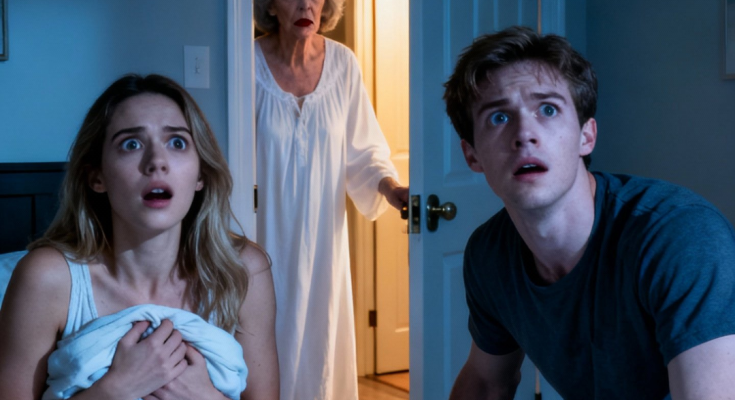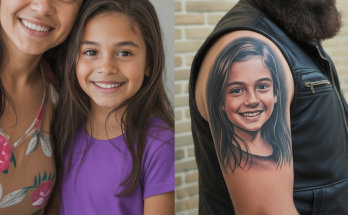When Liam and I got married, I thought I knew everything about our new life together. Our Boston home was cozy, our days were peaceful, and our routines simple. But one strange thing disturbed our calm — his mother, Margaret.
Every single night, at exactly 3 a.m., she would knock on our bedroom door.
Not loudly — just three gentle taps.
Knock. Knock. Knock.
Enough to wake me, every time.
At first, I thought maybe she needed help or was having trouble sleeping. But when I opened the door, the hallway was always empty — still and quiet.
Liam brushed it off. “Mom doesn’t sleep well,” he said. “She just wanders sometimes.”
Still, the nightly knocks continued, and my unease grew.
After a few weeks, curiosity got the best of me. I decided to find out what was really happening. I quietly placed a small camera above the door — just to understand what was going on.
That night, the knocks came again.
Three soft taps.
I stayed still, pretending to sleep.
The next morning, I watched the footage — and my heart skipped a beat.
Margaret had walked slowly down the hall, stopped at our door, and knocked gently. Then she stood there — not moving, just listening. After several minutes, she walked away.
I showed the video to Liam. He looked pale and said quietly, “She doesn’t mean any harm. She has her reasons.” But he didn’t explain further.
That afternoon, I decided to talk to her myself.
“Margaret,” I said gently, “I saw you knocking on our door last night. Can you tell me why?”
She looked at me calmly, then said, “I just want to make sure everything’s locked. I need to keep my son safe.”
Her words stayed with me. That evening, I searched through some of Liam’s old things and found a notebook. One page read:
“Mom checks the doors every night. She says she hears things, but I never do. I think she’s afraid — and I don’t know how to help.”
Later, Liam told me the truth.
After his father passed away years ago, Margaret had struggled with anxiety and sleepless nights. Ever since a break-in at their old home, she had developed a deep fear of someone entering the house again. Checking doors became her way of feeling in control — her quiet routine to make sure her family was safe.
When I joined the family, those fears shifted. In her confused, worried state, she began to think she needed to “protect” Liam — even from things that weren’t real threats.
We realized she needed professional help and gentle support, not judgment. Together, we took her to a therapist who helped her open up about the trauma she had carried for decades. Slowly, things began to change.
Margaret started therapy, began taking walks, and even joined a local support group. At home, we created new routines — checking the locks together each night, sharing tea before bed, and ending the evening with calm conversation instead of fear.
Over time, the 3 a.m. knocks stopped.
The anxiety in her eyes softened.
Our home felt lighter — not because the past had disappeared, but because we faced it together.
One night, as we said goodnight, Margaret smiled at me and said, “Thank you for staying.”
That was the moment I realized something powerful:
Healing doesn’t always come from fixing someone — it comes from walking beside them until the fear fades, and love takes its place.




